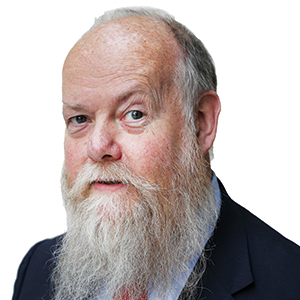Contemporary society, especially in the West, is searching for a way to deal with ever more complex worlds of difference. This is particularly the case when it comes to faiths, as societies struggle to deal with the question of what role faith plays in our respective societies. That is compounded by a growing diversity of faiths and how to deal in a fair and equitable way with all faiths and beliefs.
It was into that space that a report was issued last week by the Woolf Institute on the place of religion and belief in Britain. Critics of the report have claimed that it failed to engage the Catholic Church or Catholics. But if Catholics had been more engaged, what would have been the view?
It is highly likely that there would be no single view expressed across all three structures of the Catholic Church in the United Kingdom (Northern Ireland, Scotland or England and Wales). Much would depend on the particular cultural context, perhaps with greater similarity between the Catholic Church in Scotland and Northern Ireland than with the situation in England and Wales. All three areas would be likely to want to see a good healthy balance between state, society and individual.
The attacks in Paris and the migration of refugees has brought a renewed question about what is community and whether very diverse groups can live side by side and achieve integration. For the UK Government, that can mean having British values as a set of minimum standards to which all sign up.
When it comes to dealing with religion, some might see the solution as removing it from the public square – privatising it, so to speak. They might advocate a French or Turkish type of secularism that elevates the state at the expense of wider society or other non-state identities.
But that rigid separation and rather statist approach has not achieved success in France, nor in much of the Arab world where secular Arab nationalism was tried and failed from the 1960s onwards. Despite the evidence, the suggestion of a “level playing field”, that claims to be neutral and fair and objective, is seductive to policymakers and politicians as they try to navigate the complexity of our culture and society.
Advocating a more pluralist approach, with a healthy balance between society, state and individual, is likely to become more challenging, especially in the West. The Catholic Church will have to find new ways to do that, to protect its freedom and to operate in society and in public. It will require an effective intellectual engagement that will have to focus on the philosophical underpinnings of why things are as they are, rather than simply being seen as special pleading for institutional gain or protection.
That philosophical tradition is rich and needs to be reasserted, not only to ensure the proper place of faith in society, but also for the maintenance of a free society in and of itself. Why so? Because the place of faith in society also says something fundamental about our view of the state and its relationship to society as well as the individual’s role.
Growing diversity makes this an even more complicated task in Britain today, but however concerned we are about contemporary society, history has shown us numerous examples of how impossible it is to divorce a culture from its past. How faith communities are treated can often be a litmus test for other freedoms within society and the place of the individual.
Faith communities and other civil society groups, by offering critiques, providing alternative services and giving a space to difference, can help to ensure a society remains liberal and prevent a drift into group-think. Active faith groups in society can also limit the power of the state, which history shows has a tendency to accumulate powers if it is unchecked.
Such a perspective based on a healthy societal approach would likely produce more success than one that gave an exalted role to the state at the expense of society or tried to impose a uniformity of approach from the top down. Our tradition in the UK over recent centuries has been to move away from the statist approach to embrace a more pluralist approach to religion in public life.
Remembering the UK’s own history might give us a greater confidence to meet today’s challenge of integrating diversity. That is something to which the Catholic Church in this country has a valuable history and perspective to contribute.
Francis Campbell is vice chancellor of St Mary’s University, Twickenham, and a former British ambassador to the Holy See.
17 December 2015, The Tablet
How faith communities are treated can be a litmus test for other freedoms within society
La douce turns sour
 Loading ...
Loading ...
Get Instant Access
Subscribe to The Tablet for just £7.99
Subscribe today to take advantage of our introductory offers and enjoy 30 days' access for just £7.99





What do you think?
You can post as a subscriber user...
User Comments (1)
At Sunday Mass, Catholics stand to affirm belief in the Gospel (God’s Word); also during the Creed to affirm belief in the teaching of the Catholic Church; and again at the Lord’s Prayer, in petition that God’s will ‘be done on earth as it is in heaven.’
Divine teaching (Mt.19) and his Catholic Church teaches that marriage is the matrimonial covenant, by which a man and a woman establish between themselves a partnership for the whole of life, and which is ordered toward the good of the spouses and the procreation of children. So how in good conscience can 50% of good practicing Catholics support something that plainly contradicts that which, in God’s presence, we stand weekly at Sunday Mass to solemnly profess and affirm?